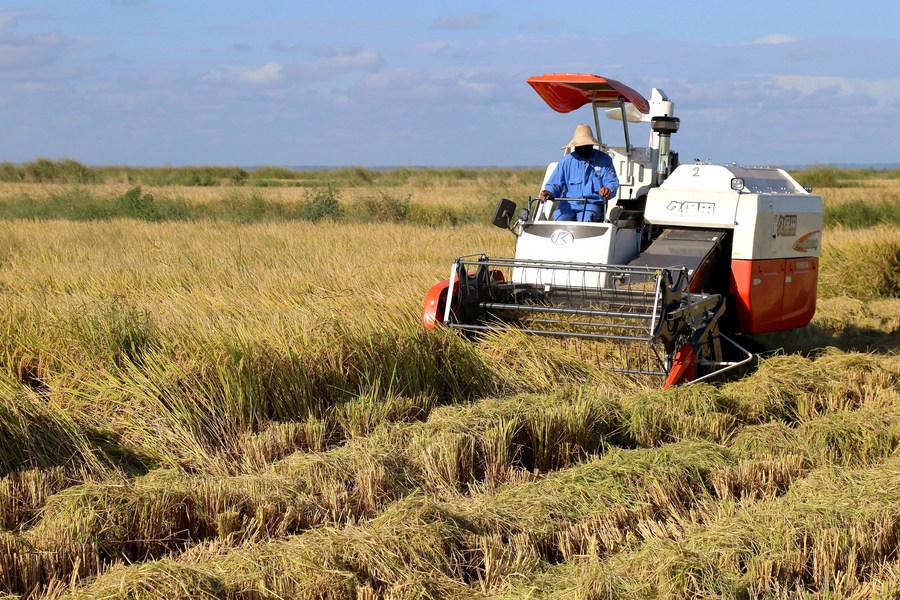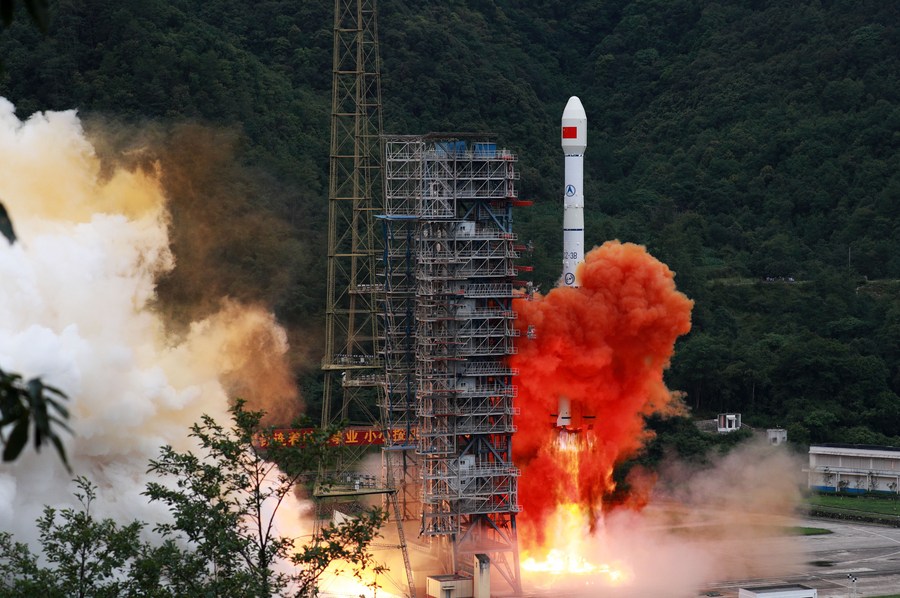Xiconomics: How Chinese innovation drives economic growth at home and abroad


BEIJING -- Milagre Abel Massingue was piloting a drone on his farm in Xai Xai city in southern Mozambique. He set up pre-mapped routes on his cell phone, and the drone started to spray pesticides accordingly.
The buzzing machine does farmwork more precisely and efficiently than the 44-year-old farmer could do alone. With the help of the China-developed BeiDou Navigation Satellite System, it could spray pesticides over about one hectare of farmland per hour, 25 times faster than manual operation.
While technological innovation nurtures modern agriculture, it has changed the life of Massingue and many other farmers on the Wanbao Mozambique rice farm. Through high-tech innovations such as the BDS, the farm has seen a 13.6-percent increase in crop yield in the last three years.
"I like what we have been doing here," said Massingue, a father of three, who has moved to a cement dwelling from a thatched roof house and sent his eldest son to college. "We are living a decent life because we managed to earn something through this project."
The Mozambican farm is just one of many projects in which China shares its technology with its worldwide partners to stimulate economic vitality. Rewards are reaped on both sides.

Over the past decade, China has stepped up technology innovation to power growth, both domestically and globally, practicing "Xiconomics," the economic philosophy of Chinese President Xi Jinping.
The BDS eyes rapid development for various industrial applications in China. It is also used for land mapping, transportation, disaster relief and mitigation, precise agriculture, forestry and small ports in over 120 countries and regions.
The Chinese president has reiterated that innovation is the basis for the development of productive forces, said Diego Pautasso, visiting professor at the Federal University of Rio Grande do Sul in Brazil.
"China's modernization is a case of great success in this direction, producing notable effects in improving people's living conditions," he said.
Economic artery
About 150 km away from Beijing, a group of engineers use drones to patrol power grids of the ultra-high-voltage (UHV) substation in Baoding city over BDS-defined paths, similar to what Massingue has done on his farm.
The super grids transmitted electricity from a renewable energy farm, about 310 km away from Baoding, and powered the Beijing Winter Olympics.
The grids of UHV projects have greater transmission capacity over long distances and can significantly reduce power losses compared with ordinary power lines.
Using the world's most advanced power transmission technology, the UHV provides a solution to solving resource imbalances in China, the first country to fully grasp the technology and put it into commercial use. It sends excess electricity from China's resources-rich west to the more developed east.
As of 2020, the UHV power projects have delivered 2.1 trillion kWh of electricity since the first station was put into operation in 2009 in China. The technology has not only fostered new engines of economic growth but also helped the country fulfill its carbon commitments by increasing the transmission of electricity generated by green energy.
"China's economy has enjoyed rapid growth over the last few decades," said John McLean, chair of the Institute of Directors for the City of London. "To continue the growth and sustain the momentum, there has been a significant investment in scientific and technological innovation which will increase GDP (gross domestic product) and maintain China as the powerhouse for Asia."
For Xi, innovation should never be developed and applied behind closed doors. "Let the power of innovation drive us to upgrade our economic, energy and industrial structures, and make sure that a sound environment is there to buttress sustainable economic and social development worldwide," said the Chinese leader.
- Survivor of Japan's 'comfort women' system dies
- 19 foreigners among China's first officially certified hotpot chefs
- China approves new lunar sample research applications from institutions
- Fishing, Hunting festival opens at Chagan Lake in Jilin
- A glimpse of Xi's global insights through maxims quoted in 2024
- China's 'Ice City' cracks down on ticket scalping in winter tourism




































